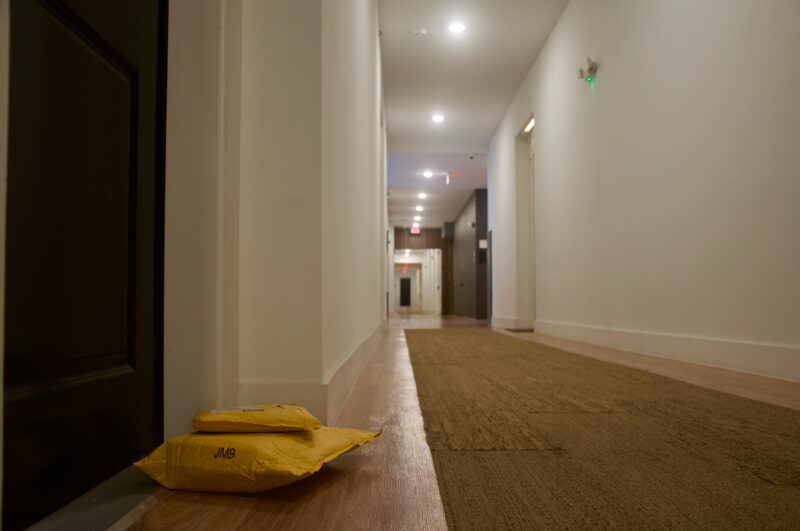Who is responsible for repairs to communal areas?
Owning a flat can be tricky, especially when it comes to communal spaces!
If your buy-to-let investment is a flat in a larger block, it’s wise to know where your responsibility begins and ends. As a leaseholder, you are responsible for issues within the property, but the freeholder is responsible for issues in the larger building.
Home Emergency Insurance for £130
- ✓ Covered up to £1,000 per emergency
- ✓ £250 for overnight accomodation
- ✓ Call out, labour & parts included
What is the difference between a freeholder and a leaseholder?
A leaseholder owns the property for a fixed period of time – this is why you will have leases on flats, often with decades on them, even up to 999 years. But a leaseholder doesn’t own the land the property is built on.
On the other hand, a freeholder does own the land, as well as the property – no lease required!
Leaseholder Responsibility | Freeholder Responsibility |
Lease required. Should this expire then full ownership of the property will revert back to the freeholder. | No lease required. You own the property and the land. |
Issues within the property - so problems that Home Emergency Insurance would cover, like boiler breakdown. As well as non-emergency issues, like a new carpet needed. | Building issues - walls, roof, outside structure. |
If you want to carry out major works or renovation, you will need permission from the freeholder. | You can make any major changes to the property you want, as long as you have planning permission from the local council. |
Additional annual costs, such as ground rent and services charges apply, which will contribute towards the larger maintenance and insurance costs. | No additional costs. Support for buildings insurance and maintenance of communal areas will come from service charges. |
What does ground rent and service charge cover?
Ground rent is the rent you pay for the land your property is on. However, the service charge covers the day-to-day running costs of the larger building, including:
- Buildings insurance. This will cover any structural damage to the building
- Maintenance and Repairs. Any issues with the lifts or other communal areas are covered here, as well as regular maintenance throughout the building
- Gardening. If there is any outdoor space, this will cover keeping it in good condition
- Communal facilities. All of the indoor communal areas will be kept clean and tidy and pleasant to use
- Concierge. If you are lucky enough to have a concierge, the service charge will cover this too
Make sure you read your contract regarding what is covered in the service charge. If you find your tenants are complaining fairly often about issues in the communal areas, you’ll want to know if this is because the freeholder isn’t meeting their contractual obligations.

What is my freeholder responsible for?
When you are a landlord of a flat, it’s worth taking the time to really go through your service charges and make sure that you understand exactly what the freeholder is responsible for and how to contact them. Your tenants don’t know how to contact the freeholder about issues, so you’ll be hearing from them if there are any problems.
Your freeholder should step into help with issues like:
- Front door maintenance. If there’s any issues with the front door of the building, that prevents it locking or closing securely, the person who owns the freehold of the property should deal with this as an emergency issue to maintain the security of the property
- Roofing issues. While you’ll be responsible for any damage to the ceiling of the flat you own (and the flat below if a flood in your property causes damage!), issues with the main roof of the building should be directed to the freeholder
- Lift breakdown. If the lifts are broken, then the freeholder needs to step in. It’s worth checking your contract to see how often they’re checked and maintained, so you can make sure this is happening
- General maintenance. The communal areas of the building, the entrance way, corridors, postal drop, should all be kept in good condition. Your tenant has a right to a comfortable space throughout the building, so let your freeholder know if these are starting to look shabby to make sure they are on top of their maintenance!
Ultimately, it comes down to always reading the small print (it’s a chore, we know!), so that you know exactly what you are paying someone else for and what you need to take responsibility for.